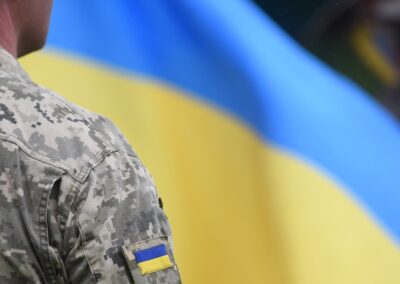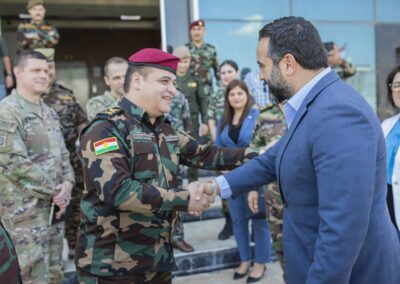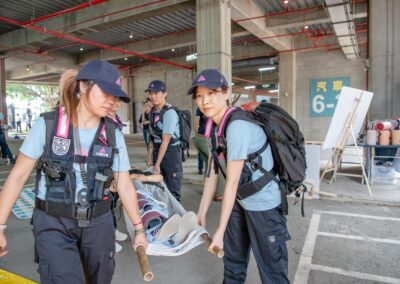Reviving Dreams, One School at a Time

It was mid-July and summer was in full swing, but for many parents across the US, back to school season was on the horizon. Half a world away, American soldiers deployed in Syria shared the same anticipation, albeit for dramatically different reasons.
For scores of families and their young ones in areas recently liberated from ISIS in northern Syria, it was back to school season for the first time in years. Under the draconian rule of the Islamic State, also known as ISIS, many children did not attend classes. Worse, some were educated by the terrorist group. That children were denied basic education was problematic; that many absorbed the contaminated curriculum of the Islamic State transformed the issue from one of inexcusable negligence to an intractable predicament that will affect the long-term stability and security of Syria and the Middle East.
If there is one truism in international development, it is this: governing an illiterate population is an exceedingly difficult undertaking. All the ingredients that make a state a state–functioning bureaucracies, competent administration, rule of law, and professional security services–cannot be managed with citizens who are unable to read or write. With a significant portion of the population indoctrinated by a terrorist organization, the challenge becomes nearly insurmountable. The security implications are plain to see.
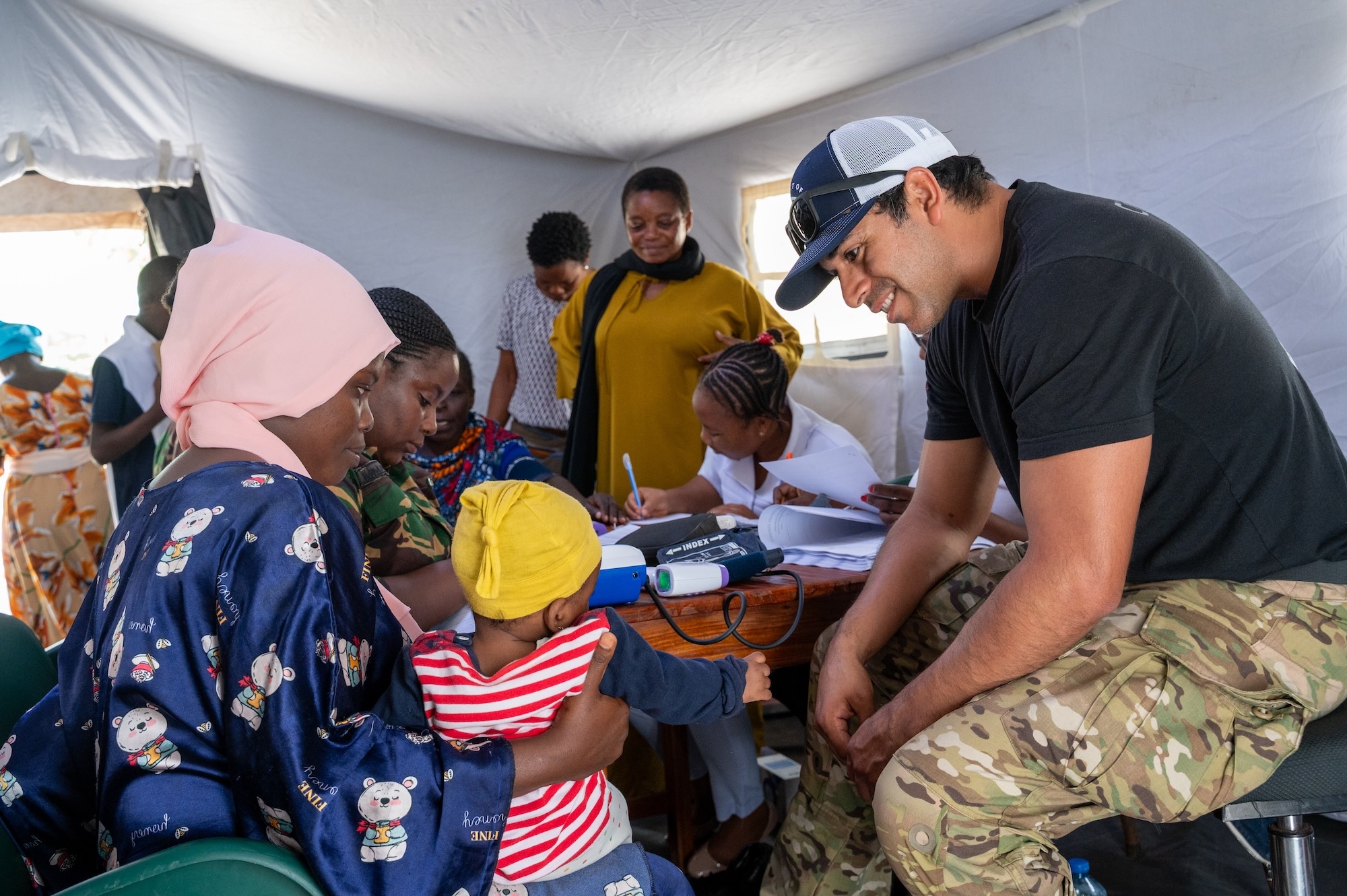
Hence, with plenty of summertime left on the calendar, the US Army Civil Affairs teams in northern Syria reached out to me to explain the situation. They considered the education of Syrian children in their area of operations a moral obligation and a security imperative. The teams wanted to collaborate with SoA to tackle the education gap in the region. Given the speed with which we can leverage our resources, we were in a position to make a large-scale and lasting impact on governance and security in the region—top priorities for the US military.
Rather than treat this as a single project, we decided to launch an ambitious Back to School Campaign to help educate thousands of Syrian children. Over the next several weeks, we continued our coordination with our military counterparts, refining the numbers and determining which schools most urgently needed the assistance. Our goal was to have educational supplies for students and teachers ready for distribution as schools opened their doors for children.
In early September, I returned to Iraq to complete the procurement of the supplies and wrap up the coordination of the campaign. The final figures were impressive, not just in sheer numbers but in terms of the impact they’ll have on the US mission and on Syrian children: 14,500 student kits (each containing enough school supplies to last a student for a semester), 185 whiteboards, 14,540 backpacks, nearly 1,000 teaching aids, and over 700 soccer balls.
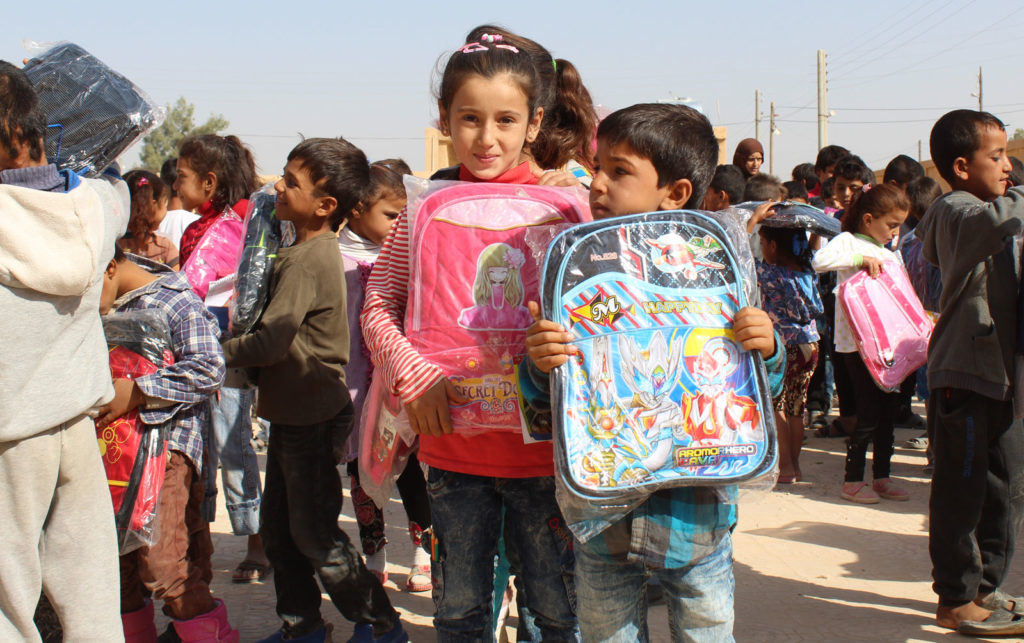 Children holding up colorful backpacks provided by SoA.
Children holding up colorful backpacks provided by SoA.
After the shipment of school supplies was delivered to Syria, the Civil Affairs teams worked closely with local civil councils to ensure equitable distribution in towns such as Tabqah, Hazima, Raqqah, Samra, Karamah, and Ayn Issa. By the time all the items are fully distributed, 16 school would have benefited, making a difference in the lives of nearly 15,000 children. The teams also tied the distribution events with mine awareness classes conducted by RMCO, a local organization that we supported in a previous project. The community was grateful, given the pervasiveness of unexploded ordnance scattered throughout the region.
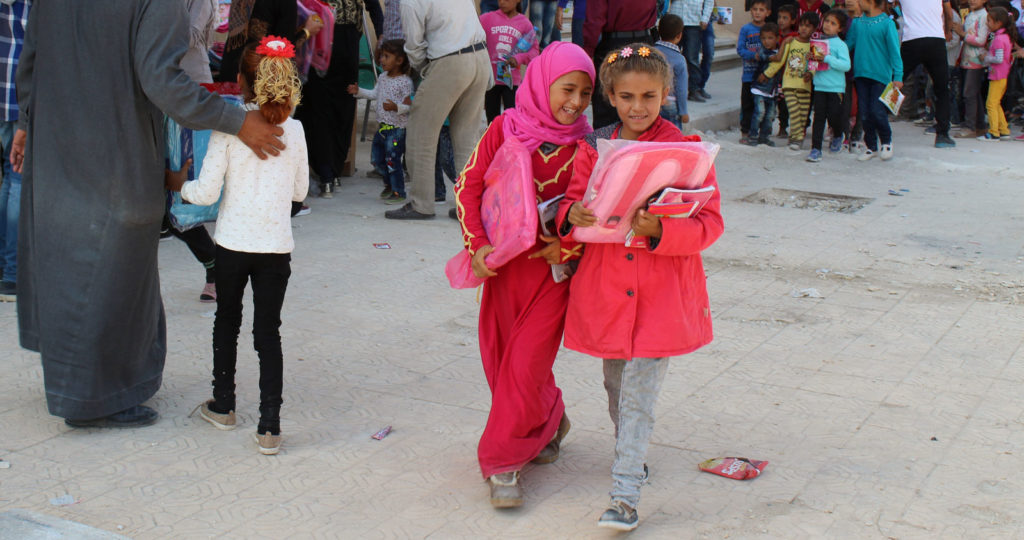 Two students show off their new backpacks!
Two students show off their new backpacks!
The Back to School Campaign reverberated in other less visible but equally important ways. The not-so-simple process of organizing the delivery of tens of thousands of items to schools in several districts required intense coordination between the US military and a myriad of local officials and civil society leaders. These sorts of relationships are invaluable, especially in a mission where earning the confidence and loyalty of the population is the key to deciding the conflict. Indeed, it’s a paradox of modern war that the most vexing security dilemmas often require non-military means involving diverse actors to address. As one soldier put it, “Functioning schools in Tabqa [Syria] will counter, reverse, and de-legitimize ISIS ideology that permeated the education system prior to the recent liberation of the city. While restarting the city’s education sector is a long-term initiative, the resumption of formal education is critical to the city’s rebuilding process and its eventual return to normalcy.”
Thanks for your support.
Zack Bazzi
Middle East Project Manager


